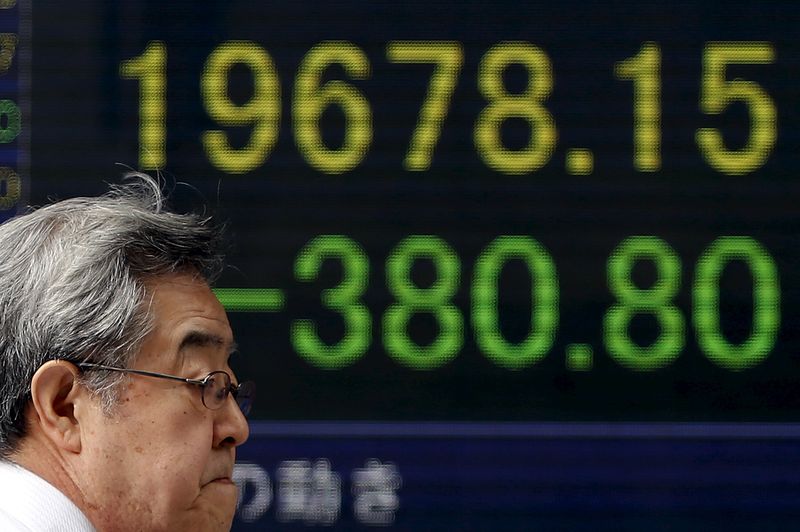By Gina Lee
Investing.com – Asia Pacific stocks were down on Thursday morning, with investors digesting weaker-than-expected American inflation data and its implications for the reflection trade betting on economic recovery from COVID-19.
In Australia, the ASX 200 inched down 0.03% by 8:42 PM ET (1:42 AM GMT).
Hong Kong’s Hang Seng Index was down 0.81%. Trading was light as many offices will close early ahead of the Lunar New Year holidays. The city could ease some COVID-19 restrictions, such as limiting public gatherings to two people and limiting both the number of people in and operation hours at restaurants, provided there are no spikes in cases over the holidays. Government services are also set to return to their normal hours of business.
Moves in other parts of Asia were also muted, with Korea and China already celebrating the Lunar New Year holidays. Markets in Japan are also closed for a holiday.
U.S. shares remained flat near the record high that opened the session. U.S. inflation data released shortly thereafter showed that the core Consumer Price Index (CPI) grew 1.4% year-on-year in January, below the 1.5% growth in forecasts prepared by Invesitng.com and December’s 1.6% growth. The core CPI was flat month-on-month, against the predicted 0.2% growth and the 0.1% growth recorded in December.
The CPI grew 0.3% month-on-month in January, against December’s 0.2% growth, and grew 1.4% year-on-year, below the forecast 1.5% growth but above December’s 1.3% growth.
All the data pointed to scant inflation and became part of the ongoing debate over inflation’s course. Despite the data, some investors continued to argue that price pressures will intensify in the coming months. U.S. President Joe Biden continues to push his proposed $1.9 trillion stimulus package through Congress and easing COVID-19 restrictions, thanks to vaccine rollouts and falling numbers of cases, is likely to spur consumer spending.
“While inflation is not showing up in the data right now, inflation is on its way thanks to fiscal and monetary stimulus and pent-up consumer demand that should intensify as the economy reopens,” Quadratic Capital Management founder Nancy Davis said in a note.
Other investors agreed.
“Some of the steam has run out of the engine over the last couple of trading sessions … we’ve had a good run, but the data hasn’t kept up, Kiwibank chief economist Jarrod Kerr told Reuters. He added that bond yields and stocks could still end the year higher after a pause in the reflation trade.
Meanwhile, Federal Reserve Chairman Jerome Powell warned that the U.S. job market remains “a long way” from a full recovery and called on lawmakers as well as the private sector to support workers in a speech Wednesday.
